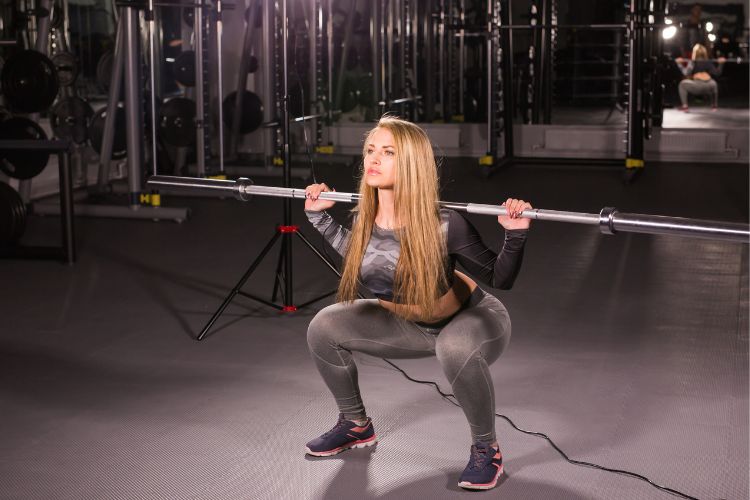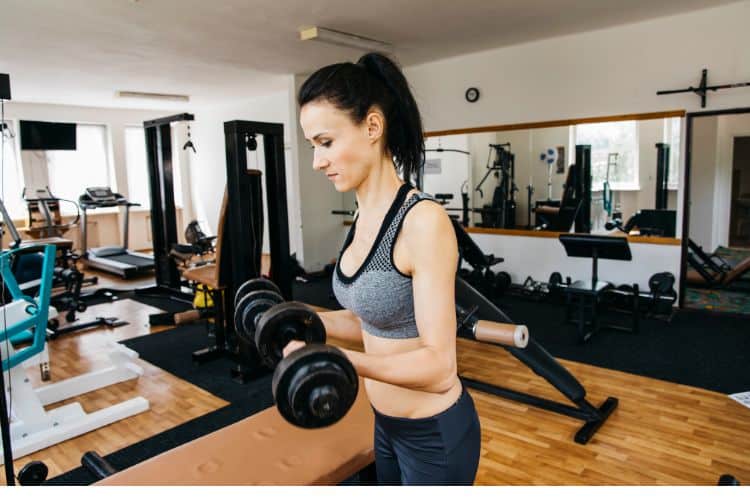Sign up for workout ideas, training advice, reviews of the latest gear and more.






The pursuit of a healthy lifestyle, often symbolized by the dual pillars of diet and exercise, remains an enduring ambition for many women around the world. In our fast-paced, digitally dominated lives, we are inundated with conflicting advice about the ‘perfect’ diet or the ‘ideal’ exercise routine. This article sheds light on this topic, emphasizing the importance of a balanced approach to diet and exercise specifically for women.
Women’s bodies are unique and go through various phases and changes, from menstruation to pregnancy and menopause. These biological events require different nutritional needs and can influence our physical capabilities and emotional states. Recognizing and respecting these changes can help women design a diet and exercise routine tailored for each life phase.
For women, dieting is not merely about counting calories. It’s about ensuring that the body gets the right balance of vitamins, minerals, and other essential nutrients.
Iron and Calcium: Especially important for women. While iron helps in preventing anemia, especially in menstruating women, calcium aids in maintaining bone health and preventing osteoporosis, especially during menopause.
Fats: Often seen as the enemy, good fats like those from avocados, nuts, and olive oil are essential for hormone regulation and skin health.
Protein: Helps in muscle repair and growth. Sources like lean meats, beans, tofu, and lentils are excellent choices.
Complex Carbohydrates: Quinoa, whole grains, and starchy vegetables provide lasting energy and help manage weight.
Hydration: Beyond plain water, hydrating foods like cucumber, watermelon, and strawberries help keep the skin radiant and support overall bodily functions.
Exercise is not just about achieving that coveted figure or losing those extra pounds. It is about feeling good, staying active, and keeping diseases at bay.
Strength Training: Contrary to the myth that lifting weights will make women bulky, strength training helps build lean muscle mass, boosts metabolism, and strengthens bones.
Cardio: It’s essential for heart health. Options like brisk walking, jogging, cycling, or even dancing can make a world of difference.
Flexibility: Activities like yoga and pilates are great not only for flexibility but also for mental peace and balance.
Bone Health: Weight-bearing exercises such as walking, jogging, or skipping can help improve bone density, reducing the risk of osteoporosis.
Mental Health: Any form of exercise can be a great stress reliever. The endorphins released during physical activity act as natural painkillers and mood elevators.
Every woman is unique, and so is her body. A diet or workout that works wonders for one might not yield the same results for another. Listening to your body, understanding its signals, and adjusting your diet and exercise accordingly is crucial.
Finding a balance between diet and exercise is the key. Depriving oneself of essential nutrients or pushing too hard in the gym can lead to burnout and health issues. It’s not about perfection but progress. Taking small steps towards a balanced diet and incorporating physical activity regularly can lead to sustainable results.
The journey towards a healthier lifestyle is a personal one, with its ups and downs. Instead of being overly critical, women should focus on celebrating small victories and understanding that everyone has their own pace.
The Role of Mindset in Diet and Exercise
Embracing a healthy lifestyle isn’t just about what you eat or how often you exercise; it’s also about the mindset you cultivate. The way women perceive themselves, their bodies, and their capabilities plays a profound role in their wellness journey.
Society, unfortunately, often places immense pressure on women to achieve a particular standard of beauty. Instead of chasing unrealistic ideals, it’s crucial for women to be kind to themselves. Remember, every body type is unique and beautiful. Being self-compassionate involves:
Accepting flaws: No one is perfect. By accepting imperfections and seeing them as a part of one’s unique beauty, women can cultivate a more positive self-image.
Celebrating progress: Even small changes, like choosing water over soda or taking a short walk daily, are significant and deserve to be celebrated.
Understanding setbacks: There will be days when sticking to a diet or exercising feels challenging. Instead of being harsh on oneself, it’s essential to understand that setbacks are a natural part of any journey.
Women often thrive in community settings. Sharing diet tips, exercise routines, or merely discussing challenges can be therapeutic and motivating.
Group Classes: Engaging in group fitness classes, be it aerobics, dance, or a spinning class, can be an excellent way to find motivation and make new friends.
Online Communities: In the digital age, numerous online platforms allow women from across the globe to share their stories, motivate each other, and even find accountability partners.
Local Clubs: From running clubs to yoga retreats, joining a local fitness or diet club can be an excellent way to find community support.
It’s impossible to discuss holistic wellness without touching upon mental health. The food women consume and the physical activity they engage in directly impact their mental well-being.
Diet & Mood: Foods rich in Omega-3s, like fish and flaxseeds, or those rich in tryptophan, like turkey and bananas, can positively impact mood. On the other hand, excessive caffeine or sugar can lead to mood swings.
Exercise as Therapy: Many women find solace in movement. Whether it’s a run after a stressful day or a calming yoga session, exercise can be therapeutic.
Mindfulness & Meditation: Incorporating mindfulness practices and meditation can improve dietary habits by promoting conscious eating and also aid in mental relaxation.
Throughout their lives, women undergo several hormonal changes, from pregnancy to menopause. Adapting one’s diet and exercise regime during these phases is crucial.
Pregnancy: During this phase, the body requires additional nutrients. Gentle exercises like walking or prenatal yoga can be beneficial.
Post-partum: After giving birth, it’s essential for women to give their bodies time to heal. Gradually incorporating exercise and ensuring a nutrient-rich diet can aid in recovery.
Menopause: Declining estrogen levels can lead to weight gain. Adjusting one’s diet and incorporating strength training can help in managing this phase better.
Given the individualistic nature of every woman’s body, considering a personalized diet and exercise plan can be advantageous. Nutritionists or personal trainers can offer insights tailored to specific needs and goals.
Extending the discussion on diet and exercise for women means diving deeper into the psychological, communal, and adaptive elements of wellness. As women navigate the maze of societal expectations and personal aspirations, having a balanced, compassionate, and informed approach can make all the difference. Whether it’s finding solace in a community, adapting to life’s changes, or understanding the deep-seated connection between physical and mental health, the journey of diet and exercise is as intricate as it is rewarding. Remember, it’s not about conforming to an external standard but about cherishing and nurturing oneself from within.
Stay up to date on the latest women’s health, fitness and lifestyle trends and tips.